June 3, 2025 | 04:01 GMT +7
June 3, 2025 | 04:01 GMT +7
Hotline: 0913.378.918
June 3, 2025 | 04:01 GMT +7
Hotline: 0913.378.918
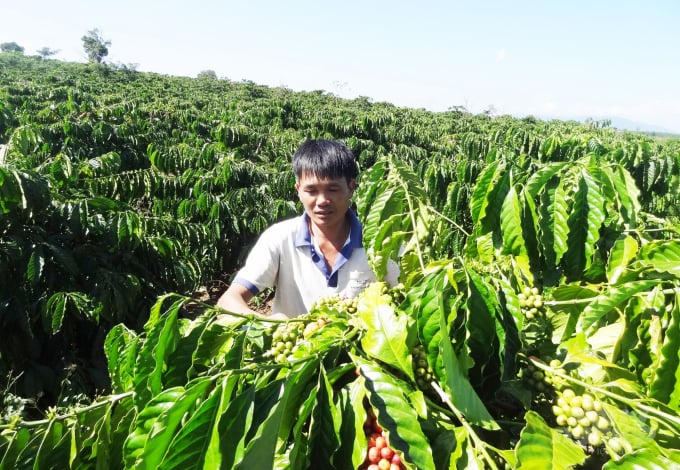
Coffee export turnover in 2021 reached US$ 3.073 billion. Photo: Tran Trung.
Among agricultural, forestry, and fishery products with an export turnover of US$ 3 billion or more in 2021, coffee is the commodity that faces the most difficulties.
In the first half of 2021, the export of this commodity decreased compared to the same period in 2020. By the end of July 2021, coffee exports only reached approximately US$ 1.8 billion, down 0.1% compared to the same period last year. From August 2021 onwards, coffee exports have prospered again. By the end of November 2021, the export value of coffee reached nearly US$ 2.7 billion.
Coffee exports in the last month of 2021 had a spectacular jump when reaching 169,000 tons and US$ 379 million, up 57.6% in volume and 56.9% in value compared to November 2021, up 21.8% in volume and 49.6% in value compared to December 2020. As a result, coffee export turnover in 2021 reached US$ 3.073 billion.
Of which, processed coffee exports in 2021 will reach US$ 569.46 million, up 2.9% compared to 2020. Vietnam currently exports processed coffee to more than 100 countries and territories worldwide. The main markets of Vietnamese processed coffee are ASEAN, Europe, China, and the US.
The finish of coffee exports in 2021 is mainly due to the high price of coffee globally, thereby positively affecting the price of Vietnam's coffee exports.
In December 2021, the average export price of Vietnam's coffee reached US$ 2,237 per ton, up 22.8% compared to December 2020. For the whole year of 2021, the average export price of coffee reached US$ 1,966 per ton, up 12.3% compared to 2020.
The sharp increase in export coffee prices continued to impact coffee exports earlier this year positively. In January 2022, the whole country exported more than 163,000 tons of coffee, up 1.8% compared to January 2021, but in value increased by 32.1% when reaching US$ 371 million. Previously, the record of coffee exports in the year's first year was set in January 2018 with US$ 420 million.
According to the International Coffee Organization (ICO), in 2021, the world coffee price will increase sharply, with the average price reaching Cent 338.2 per kilogram, up 41% compared to Cent 239.8 per kilogram in 2020.
In January 2022, the world coffee price continued to increase slightly by 0.6% compared to the previous month to Cent 454.0 per kilogram, the 16th consecutive month of global coffee price increase.
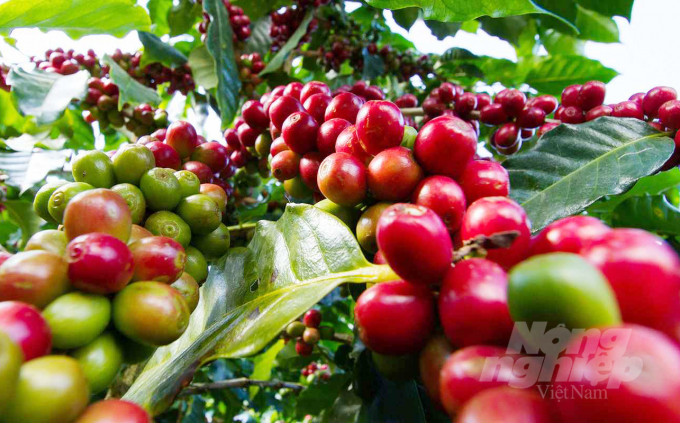
The US Department of Agriculture (USDA) forecasts world coffee production in 2021-2022 to decrease to 167.5 million bags.
Global coffee production is forecast to decrease, making limited supply the leading reason for coffee prices to continue to be at a good level this year.
The US Department of Agriculture (USDA) forecasts world coffee production in the crop year 2021-2022 to reach 167.5 million bags (60 kilograms per bag), a decrease of 8.5 million bags (equivalent to a reduction of 4.8%) compared to the 2020-2021 crop year. The main reason is that arabica coffee in Brazil enters a low yield cycle (every two years) and is affected by adverse weather factors.
For 2021-2022, the USDA forecasts Brazil's coffee production to fall by 13.6 million bags from the previous crop year to 56.3 million bags. Arabica coffee production decreased by 14.7 million bags to only 35 million bags. In contrast, robusta production is forecast to increase by 1.1 million bags to a record 21.3 million bags.
As a result, Brazil's coffee exports are expected to decline by 11.7 million bags to 30 million. Ending stocks are forecast to decrease by 500,000 bags to 2.9 million bags. Brazil's coffee consumption is expected to continue to grow to a record 23.7 million bags.
Besides the drop in output, Brazilian exporters also face many obstacles in hiring cargo ships and containers, while shipping companies regularly delay and cancel shipments.
As Brazil's coffee exports are projected to decline sharply, global coffee exports in the 2021-2022 crop year are expected to decrease by 3.8 million bags from the previous crop year to 117.2 million bags.
Meanwhile, global coffee consumption is forecast to increase by 1.5 million bags to 165 million bags, increasing mainly in the European Union, the US, and Brazil.
Consumption is up while output is falling, and global coffee stocks for the 2021-2022 crop are expected to fall by 6.3 million bags to 30 million, the lowest level in the past five seasons.
From 2021 to 2025, the factors driving the coffee market to develop such as population growth outside the families, rapid urbanization, increase in e-commerce retail sales, increase in income Generation Z, increased preference for instant coffee, growing demand for specialty coffees, and increased consumption of green coffee in emerging economies.
The US Department of Agriculture forecasts Vietnam's coffee production in 2021-2022 to recover after a severe drought in the previous crop year. Specifically, it will be 31.1 million bags, increasing by 2.1 million bags compared to last year.
However, the Vietnam Coffee Association (Vicofa) believes that Vietnam's coffee output in 2022 will be lower due to low productivity beautiful pods. Still, no kernel inside or very small grains, and people do not have money to invest in garden care.
The five largest coffee import markets in the world in 2021 are the US, Germany, France, Canada, and Japan. Vietnamese coffee. In general, it still holds a relatively small market share in these five markets (4.52% in the US; 11.29% in Germany; 1.86% in France; 1.03% in Canada; 14.93 % in Japan).
Therefore, the Import-Export Department (Ministry of Industry and Trade) said that Vietnam still has a lot of potentials to increase exports to the most important markets. To meet the markets' strict requirements and improve product quality, the coffee industry needs to focus on traceability and production capacity improvement.
Vietnam's coffee export structure is currently changing, reducing the export of raw coffee beans and promoting processing and exporting roasted and ground coffee. Trade promotion activities continue to be focused, helping to encourage and connect Vietnamese coffee products to the world market.
Translated by Ha Phuc

(VAN) Businesses in Vietnam are attempting to export rice to the United States ahead of the implementation of reciprocal tariffs, while remaining their optimism regarding this critical market.
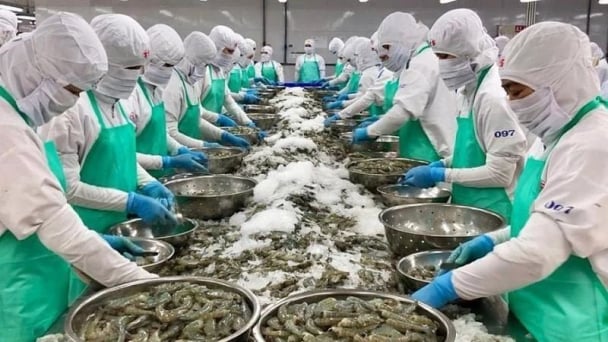
(VAN) From containers of cashew nuts, shrimp to in-depth technical dialogues, agricultural cooperation between Vietnam and the United States is entering a period of sustainable and two-way development.

(VAN) After the talks on May 28, Vietnam successfully exported its first batch of frozen durians to China, marking a new milestone in agricultural trade cooperation between the two countries.
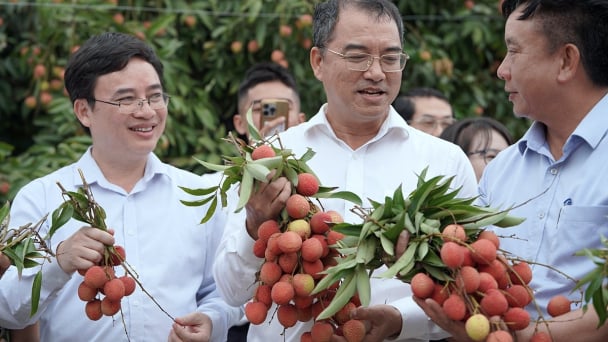
(VAN) Several major companies, such as Red Dragon and Ameii Vietnam, have signed purchasing agreements for the 2025 season, targeting markets including Japan, the United States, and the EU.
/2025/05/30/5010-5-173638_943.jpg)
(VAN) On May 29, at the GO! My Tho Trading Center, the Tien Giang Department of Industry and Trade, in collaboration with Central Retail Corporation, held the opening ceremony of the 3rd Fruit Festival 2025.

(VAN) Reciprocal tariffs are exerting pressure on U.S. exports, prompting Vietnamese firms to shift their focus to Muslim markets, Thailand, and Brazil.
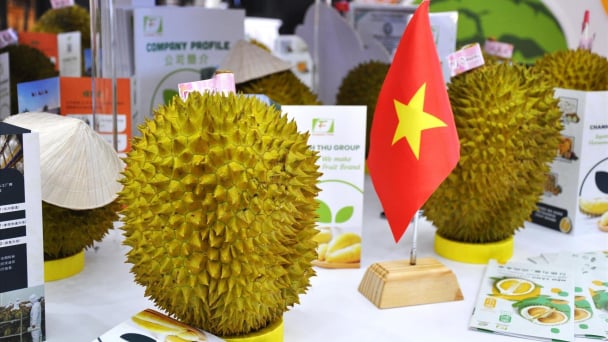
(VAN) A free booth for two years at Xinfadi, Beijing's largest wholesale market, will be allocated to Vietnam's agricultural products.